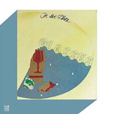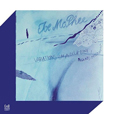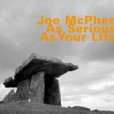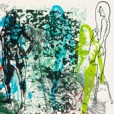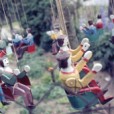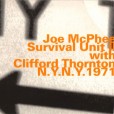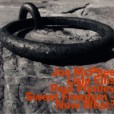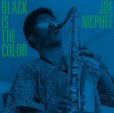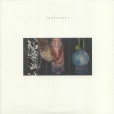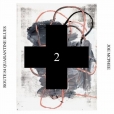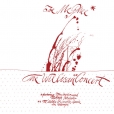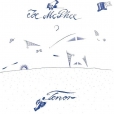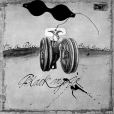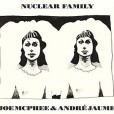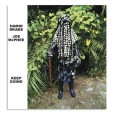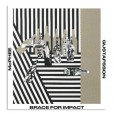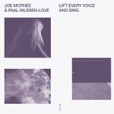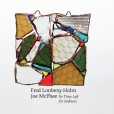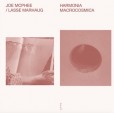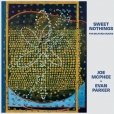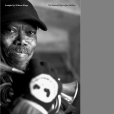Your basket is empty

The founding principle of this magnificent Swiss label was to document the music of Joe McPhee. Here he is solo, more than two decades later in 1998, on reeds, pocket cornet, piano and electronics, nodding to Trane, Marilyn Crispell, Miles, Conlon Noncarrow, Ra, Gershwin… and Val Wilmer. It’s gripping, direct and evocative; brimming with body and soul; very warmly recommended.
Invigorating shots of spiritual jazz — the business, no sugar, no additives — in two versions from 1970, for tenor saxophone and space organ. Lovely artwork by Dick Higgins.
Fab.
‘Multi-track, multi-instrumental recordings — more compositional in nature than Sound On Sound — especially prized by the man himself. Over-dubbing builds and sculpts each piece, creating complete wind ensembles one track at a time. In 1974 and then again in a longer session in 1979, McPhee recorded himself in concise solo, duo, and tripartite self-communion, like a one-man-WSQ, his probing investigations and lyrical statements as incisive and insightful as those of his best-known recordings.’
‘Never-before-issued music from three very different settings in upstate New York, all recorded in the period running up to Nation Time.
‘First, from a year before, in the same hall at Vassar College, with soulful vibraphonist Ernie Bostic and a rhythm section of Tyrone Crabb and Bruce Thompson, both on Nation Time, performing a Trane-oriented set that included versions of Mongo Santamaria’s Afro Blue besides Naima, as well as McPhee-fave God Bless The Child. Deeply emotional and fiery playing with this unusual instrumentation — and it’s rare to find McPhee playing with a harmonically based instrument like vibes.
‘Also a quartet concert at a monastery in nearby New Windsor, with saxophonist Reggie Marks, playing a powerful combination of originals and the Patty Waters-associated traditional tune Black Is The Color.
‘Finally, three cuts document a more rough-and-tumble gig taped outdoors in the park at Poughkeepsie’s Lincoln Centre. A funky, bluesy, lowdown, explosive configuration, they feature vocals by one Octavius Graham, great drumming by Chico Hawkins, and Tyrone Crabb on electric bass.
‘This two-CD set has been lovingly transferred from original tapes in McPhee’s personal archives, and is augmented by newly discovered photographs of the concerts.
‘A spectacular deep dive into the pure magic of Mr. McPhee.’
‘A studio recording from 1979, previously unreleased. It is primarily structured around pairs of tunes by Charles Mingus, Thelonious Monk, and Duke Ellington (or Billy Strayhorn), adding Ornette Coleman’s Lonely Woman for good measure. The results are stunningly intimate and show the twosome’s capacity for creative interplay at a fairly early stage in its unfolding. Pithecanthropus Erectus gets pared down to its essential walking-bass-ness, while Monk’s Evidence is taken apart, and solo spots by both men are as riveting as one would expect.’
‘The session somehow consolidated their shared energy in an unexpected way — the drummer’s incredible warmth and sense of buoyancy, the saxophonist and trumpeter’s preternatural musicality and quest for social justice. The recording started with McPhee reciting words by Harriett Tubman, resulting in the title track; Drake’s support was an achingly slow Max Roach-like beat. From this inspired, inspiring starting point, the twosome frolicked through a rich program, McPhee donning tenor and alto saxes, and pocket trumpet, Drake turning momentarily to the frame drum. Each musician contributes an introspective solo track. McPhee at one point plays trumpet into an open gong, which gives him otherworldly overtones, a sort of acoustic version of electric Miles…’
‘As searching and searing as anything either of them has made, these 2008 duets live up to their explosive title. Gustafsson is known for his energy, and it’s here in droves, but there are other nuances brought out by McPhee — a supple sense of melodicism (hey now, Gustafsson is a Swede, so by birthright he’s melodic) and the love of experimental sound-making that McPhee displayed on his sound-on-sound recordings in the late ‘60s…
‘Insanely powerful. We recommend that you prepare yourself for the impact.’
Recorded in St. Edmund’s Church, Oslo, on 13 December 2017.
Compositions by James Weldon Johnson and Thelonious Monk; also originals, including a tribute to Don Cherry.
Another humdinger in the Actions For Free Jazz series supervised by Smalltown Supersound.
Vinyl only, no digital. 500 copies, that’s it.
Even at the age of eighty — Nation Time is fifty years old — Joe McPhee refuses to stand still or bask in nostalgia. For all its lovely strangeness — for a start, besides playing, he sings and recites — this LP elaborates lineages in his oeuvre initiated with John Snyder in the seventies, and sustained with Pauline Oliveros.
Lasse Marhaug is an old hand, young at heart, too. After thirty years of making electronic music — hundreds of releases, collaborations and projects — his name is synonymous with Norwegian noise music.
A one-of-a-kind, highly enjoyable, compelling mixture of free jazz and electronics, inspired by science fiction and early electronic music.
